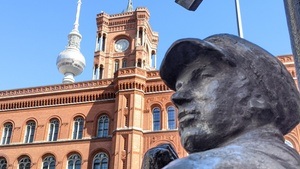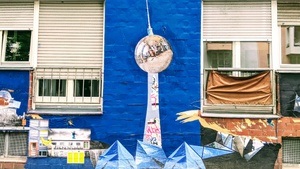Anuversum: ROLLENARBEIT MEETS PHILOSOPHIE
In the organizer's words:
Workshop
If you've always wanted to find out more about how the characters in our productions and poetic worlds are created, you've come to the right place: a workshop on role and character work at Theater ANU with Jacek Klinke - long-time ensemble member, theater teacher and director - and philosopher Heinz-Ullrich Nennen.
The gods will also be the theme here: Which god, which goddess suits me? How do I create a character that I can really let myself fall into, that has power and endurance - in our play world and perhaps also in our life world... The workshop is aimed at amateur players, role-players and professional actors. It is a wonderful preparation for our Roleplay Xperience DAS LETZT BÜNDNIS.
Jacek Klinke was born in Gliwice/Poland in 1978 and has lived in Berlin since 2003. After graduating from high school, he began his studies in Eastern European history and classical archaeology at the University of Cologne. He attended his first acting courses during his studies. From 2003 to 2006, he studied acting at the Michael Tschechow Studio in Berlin.
His independent artistic work began with his acting degree. A close cooperation partner on his path is the Theater ANU, with whom he has been working since 2007.
In addition to his work on stage, he is also active in the fields of directing and theater education. He appreciates both sides of the stage and is enthusiastic about the potential mutual learning process.
His high maxims are to keep an open mind and to condense things into truth.
Heinz-Ulrich Nennen, born in 1955 in Rheine in Emsland, is Professor of Philosophy at the Karlsruhe Institute of Technology (KIT).
Topics: Philosophical psychology - self-awareness, hero's journey, - myths, fairy tales, master narratives - psychogenesis, history of ideas - orientation knowledge, self-orientation - body, soul, love, self and spirit - dialogs, discourses and metaphors as well as zeitgeist and discourse analyses.
Prof. Nennen organizes philosophical cafés and runs a philosophical practice in Münster.
His motto: "First of all, the real must be brought to language, because this is the only way to bring the new into thought. From there, it can enter the world and then, at the latest, it will not remain entirely without effect in our own lives."
This content has been machine translated.













